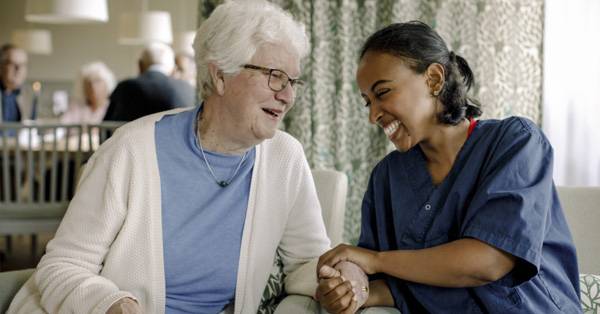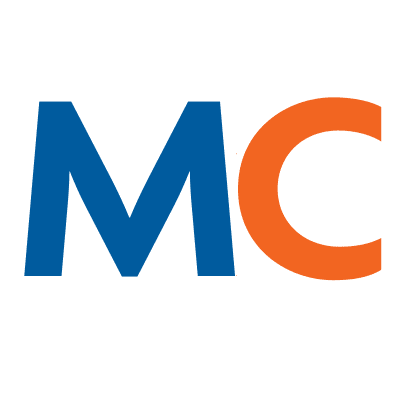- Solutions
- Solutions
- Home Health
- Hospice
- Life Plan Community
- Palliative Care
- Private Duty
- Senior Living
- Skilled Nursing
- Skilled Nursing
- Skilled Nursing Software
- Advanced Insights
- Customer relationship management
- Data and analytics
- Financial & operations management
- Marketing
- Nutrition management
- Referral management
- Regulatory compliance
- Retail management
- Resident engagement
- Revenue cycle management
- Skilled nursing interoperability
- Partners
- Blogs
- Resources
- About
- User Conference

6 Benefits of a well written care plan in home health and hospice
In home health and hospice, care planning is not only regulatory, but it’s also the main driver toward delivering the best care possible. Beyond basic visit notes and checklists, individualized plans of care must reflect patient and family goals and intervention—helping to ensure regulatory guidelines and expectations are met.
Failure to meet these requirements can lead to medical review denials. Here are some of the top denial reasons, many of which are directly related to care planning (or lack thereof).
Top denial reason codes in home health:
- 5HN18 – Skilled nursing services were not medically necessary
- 5HC09 – The initial certification was missing, incomplete, or invalid
- 5HC01 – The physician certification was invalid since the face-to-face encounter was missing, incomplete or untimely
- 5HY01 – Medical documentation did not show that the therapy services were reasonable and necessary
- 5HH01 – Documentation submitted does not support homebound status
Top denial reason codes in hospice:
- 5PM01 – The information provided does not support a terminal prognosis of six months or less
- 5PX06 – The notice of election is invalid because it doesn’t meet statutory or regulatory requirements
- 5PM07 – Physician services were not reasonable and necessary or were administrative in nature
- 5PM02 – The documentation indicates the general inpatient level of care was not reasonable or necessary
- 5PC08 – Face-to-face encounter requirements were not met
By writing to well written care plans, home health and hospice organizations can avoid denials and so much more. Here are six benefits of putting more focus on care planning:
1. Guide care and provide a roadmap for the patient. Whether home health or hospice, patients and their families are in a high-stress situation. With a roadmap, they understand the end goal and are more likely to stay on the correct guidance for the services that will get them there.
2. Show collaboration among disciplines. A care plan that is created and supported by multiple disciplines helps to ensure a focused effort of care, defined goals, and supports optimal team communication.
3. Justify and support the need for services. When clinicians are reviewing a chart, there should never be a question about what exactly they need to do, why they’re doing it, and what the benefit is. Likewise, when a chart goes through an audit process, the care plan should be a source of truth for skilled needs and medical necessity.
4. Identify the skilled interventions needed for the patient. Clinicians should not have to navigate to multiple areas in a chart to find out what needs to be done during a visit. The care plan should clearly state the interventions to support timely documentation and visit efficiency.
5. Support homebound status. Should care be delivered in the home? Care plans help to evaluate the best services and environment for patients and families to meet their goals.
6. Welcome patient, caregiver, and family participation. Services delivered in the home require seamless communication. Care planning supports this communication by making sure everyone is on the same page and encouraging everyone to participate.
Are you ready to experience the benefits of care planning? Schedule a demo with MatrixCare to see for yourself how our comprehensive approach can help you reach compliance and beyond.
See what MatrixCare can do for you
Kathleen Courson
Kathleen Courson, RN, BSN (Katie) has been a registered nurse for 24 years with 18 of that spent in home health and hospice. She has worked in all realms of the industry, from field nurse to administration, including being involved in a start-up of an independent Medicare Certified Home Health agency in her rural community.
Katie is the Clinical Product Manager for the Home Health and Hospice Division of MatrixCare. She was previously on the MatrixCare Professional Services team as a Clinical Implementation Consultant. Prior to joining the MatrixCare Team, she was an active member of NAHC and the Pennsylvania Homecare Association, participating in the education committees for both organizations. She has held certifications in both OASIS and ICD-10 and provided remote coding/OASIS review services and instructions. Katie resides in rural NWPA with her husband of 24 year and they have 3 young adult daughters.
Related Posts



See MatrixCare in action
Start by having a call with one of our experts to see our platform in action.
MatrixCare offers industry-leading software solutions. Thousands of facility-based and home-based care organizations trust us to help them improve efficiency and provide exceptional care.





